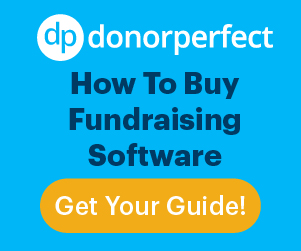There is an excise tax on the net investment income of most domestic private foundations. This tax must be reported on Form 990-PF, Return of Private Foundation, and must be paid annually at the time for filing that return or in quarterly estimated tax payments if the total tax for the year is $500 or more.
In addition, the Internal Revenue Code contains five provisions that impose two-tier excise taxes on private foundations, foundation managers, or other disqualified persons that engage in certain prohibited acts. These are the taxes on self-dealing between private foundations and their substantial contributors or other disqualified persons; (2) requirements that the foundation annually distribute income for charitable purposes; and (3) penalty excise taxes designed to discourage behavior detracting from a foundation’s ability to further charitable purposes. Thus, the IRS may assess excise taxes on:
- Certain foundation holdings in private businesses;
- Foundation investments that jeopardize the carrying out of exempt purposes;
- Expenditures for certain activities not furthering exempt purposes.
These penalty excise taxes are reported and paid on Form 4720.
Violation of these provisions give rise to taxes and penalties against the private foundation and, in some cases, its managers, its substantial contributors, and certain related persons. The first tier (initial) tax is automatically imposed if the foundation engages in a prohibited act. With the exception of self-dealing acts under section 4941, the initial taxes may be set aside if it is established that (1) a taxable event was due to reasonable cause and not to willful neglect, and (2) the event was corrected within the correction period.
Additional information
- Instructions to Forms 990-PF
- Instructions to Form 4720
- Return Due Dates for Exempt Organizations Excise Tax Returns (Forms 4720 and 6069)
- Correction during correction period
- Private foundation excise tax appeal procedures
For the rules relating to private foundation excise taxes, the following persons are considered disqualified persons with respect to a private foundation:
- All substantial contributors to the foundation,
- All foundation managers of the foundation,
- An owner of more than 20 percent of–
- The total combined voting power of a corporation,
- The profits interest of a partnership, or
- The beneficial interest of a trust or unincorporated enterprise, which is, during the ownership) a substantial contributor to the foundation,
- A member of the family of any of the individuals described in (1), (2), or (3),
- A corporation of which more than 35 percent of the total combined voting power is owned by persons described in (1), (2), (3), or (4),
- A partnership of which more than 35 percent of the profits interest is owned by persons described in( 1), (2), (3), or (4),
- A trust, estate, or unincorporated enterprise of which more than 35 percent of the beneficial interest is owned by persons described in (1), (2), (3), or (4),
- For purposes of the tax on excess business holdings only, another private foundation that either–
a. is effectively controlled, directly or indirectly, by the same person or persons who control the private foundation in question, or
b. receives substantially all of its contributions, directly or indirectly, from the same persons described in (1), (2), or (3), or members of their families, who made, directly or indirectly, substantially all the contributions to the private foundation in question, and - For purposes of the tax on self-dealing only, a government official.
Indirect ownership of stock in a corporation, profits interest in a partnership, or beneficial interest in a trust, estate, or unincorporated enterprise is taken into account for determining whether:
- The stockholdings, or profits or beneficial interest, amount to more than 20 percent of the total combined voting power of the corporation or more than 20 percent of the profits or beneficial interests, or
- More than 35 percent of the total combined voting power of the corporation or more than 35 percent of the profits or beneficial interests are owned by persons described in categories (1), (2), (3), or (4).
See Attribution of ownership for more information on indirect ownership rules.
DISCLAIMER: This information is not intended to provide legal or accounting advice, or to address specific situations. Please consult with your legal or tax advisor to supplement and verify what you learn here.







